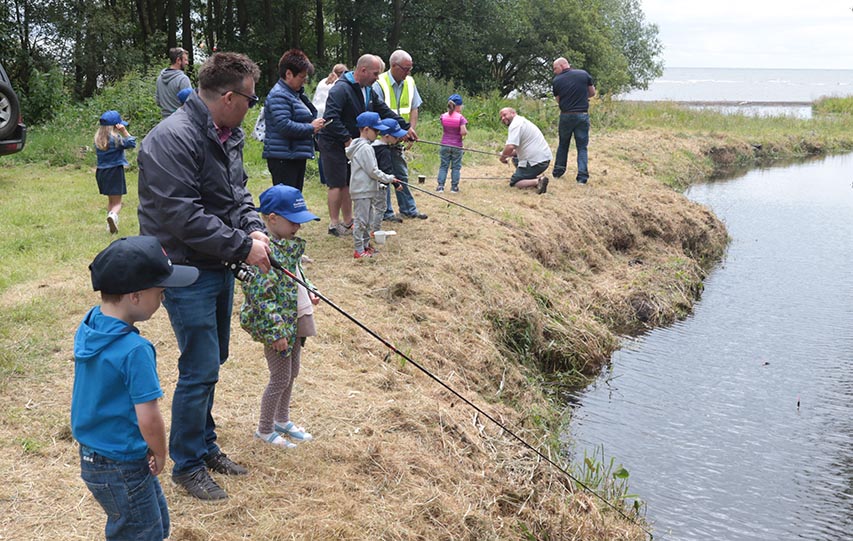Newry Mourne and Down District Council is to investigate how to bring forward improvements to the Quoile River coarse fishery.
A motion brought to the Economic Regeneration and Tourism Committee by Independent Councillor Cadogan Enright on coarse angling was presented to the committee in the absence of Cllr Enright by Cllr Patrick Brown (Alliance).
The motion read: “Recognising the importance to tourism and the local economy, particularly in the Quoile River, and noting the proactive approach taken by other councils to restock fish on behalf of anglers, this council will commit to fund restocking of fish in line with other council areas, carry out a review of fisheries across the District, and work with DAERA and other councils to develop a best practice approach.”
Coarse angling in Ireland is mainly for rudd, roach, bream, hybrids, eels, pike, perch, tench and carp. Game fishing is for salmon, sea trout, and other types of trout eg rainbows, brownies etc.

Alliance Cllr Patrick Brown explained that the neighbouring council, Ards and North Down Borough Council, has already spent a few thousand pounds on angling development. He added that both Cllr Enright and himself had spoken to anglers on the River Quoile and echoed their support for a river stocking plan.
Cllr Brown said: “The River Quoile was once a top coarse fishery in Ireland and it has been neglected. And other councils have taken the lead.
“We need to bring forward an options paper.”
In the debate, Sinn Féin Councillor Willie Clarke said it was a “worthwhile” idea in trying to improve angling in the district but he said that inland fisheries including angling was “a DAERA responsibility and we need to be cautious going forward. Our council can investigate but not necessarily fund and stock improvements that may take place.
“Sea angling too is another area which could attract tourists and visitors to the district. We need to improve the infrastucture and certainly consider disability in all of this. We should definitely investigate it further.”
There is a viable seasonal tope fishery in Carlingford Lough as part of a sea angling development, it could also be an incentive to attract visitors and anglers to the district.
There is too a possible biodiversity issue involved in the principle of re-stocking. Several years ago, an eminent fish scientist gave a talk in Killyleagh when a local club were improving the environment and by clearing rubbish from the Dibney River and proposing to re-stock it with sea trout.
He explained that this new fish stock would displace the genetic strain of the original sea trout gene pool of the fish in the river and need to consider how to approach this issue recognising best practice. Similarly, biodiveristy could be compromised inadvertently by a rush to restock.
The River Quoile once had a very good rudd fishery, and although this has diminished to some degree, the original gene pool is still there and could be identified, maintained and developed for the purposes of biodiversity.
The solution is to find a way to encourage the rudd to breed eg create reed beds etc. in the upper reaches of the river and this would no doubt also involve the Rivers Agency. But restocking could therefore cause a biodiversity issue and an environmental assessment would be useful.
DAERA has in the past stocked the Quoile River with pike taken from other fisheries but many of these were eaten by seals that found a way into the lower Quoile river. And presumably the rudd population too suffered from this predation.
Also, the coarse fishery of Newry Canal overlaps with remit of the Loughs Agency which covers the Carlingford Lough area and inland rivers and loughs.
Some fisheries could be game (trout) or coarse fisheries. So the scoping paper would therefore have to consider which fisheries to include in its coarse fisheries’ audit in order to embrace completely coarse fishing across the district.
























